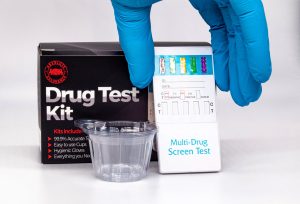California Bill Would Ban Pre-Employment Marijuana Screenings
Adults in California can smoke marijuana (or consume it a myriad of other ways) without fearing jailtime. However, use after-hours can still have adverse consequences for one’s employment prospects. A new bill introduced in the state legislature would change that, five years after voters legalized recreational cannabis. 
As longtime Los Angeles marijuana lawyers also well-versed in California employment law, we recognize this could be a substantial benefit not only for workers, but cannabis companies as well.
Assembly Bill 1256 would put a stop to the common practice of common employers who require workers to be tested for marijuana use. It would also prohibit employers from using certain kinds of evidence of prior marijuana use (urine tests, hair follicle tests, etc.) from being used to discriminate against the worker or denying them employment opportunities. The measure is sponsored by California NORML.
Urine and hair follicle test are of particular concern for employee advocates because they don’t show any indication of on-the-job impairment due to the psychoactive ingredients of marijuana. Similar issues exist with traffic cases involving drivers suspected of marijuana impairment; there is no “marijuana breathalyzer” that can indicate current impairment, only previous use – which could be anywhere from an hour ago to two weeks ago or even months prior. Blood tests can be more accurate in telling recent consumption, but even the U.S. Supreme Court has reasoned (albeit in a different context) that these are more invasive and should only be a last-resort.
To be clear: Employers still have the right to insist their employees not work under the influence. As noted by the California Chamber of Commerce, state law allows employers to mandate suspicionless drug tests as an employment condition (though they can’t randomly drug test workers except under very narrow circumstances). However, depending on the industry and worker’s role, it could be a clear liability issue if they don’t drug test. But because existing drug screens don’t tell us whether someone is currently under the influence, their application seems overbroad. Some have compared the use of urine tests by employers trying to determine intoxication like finding a beer bottle in a person’s trash and deciding they must be drunk.
The bill contains a provision that allows for a legal cause of action if an employee or prospective employee is discriminated against for their legal cannabis use off-the-clock. As noted by a spokesman for NORML, employees have the right to engage in many other legal activities off-the-clock, from smoking to drinking to firing off guns.
“Use of cannabis should be treated the same way,” the spokesman said.
The chances of AB 1256 being passed this year are uncertain, though sponsors say they are still seeking input from stakeholders, meaning it might not be taken up in earnest until 2022.
If it passes with its existing language, it does contain numerous exemptions, including employers under federal mandate to test for THC and those that would lose licensing-related or monetary benefits for failing to test. Those in the construction or building trades would also be exempted.
The Los Angeles CANNABIS LAW Group represents growers, dispensaries, ancillary companies, patients, doctors and those facing marijuana charges. Call us at 949-375-4734.
Additional Resources:
No more urine tests: Proposed California law would end most workplace marijuana tests, March 1, 2021, By Andrew Sheeler, The Sacramento Bee
 Cannabis Law Group's Medical Marijuana Legal Blog
Cannabis Law Group's Medical Marijuana Legal Blog




